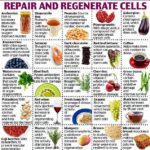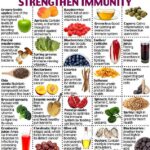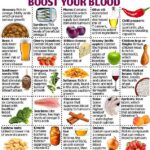
What is Food To You?
What is food?
Food is_______!
How do you fill in the blank?
The mantra I hear everywhere is Food is Fuel! Is it just calories and energy to fuel our body?
Do you think of it as being cultural, personal, shameful, boring, always on your mind, only social, too much work or just necessary for survival? Everyone has a different relationship with food.
Understanding that relationship is helpful especially when you feel stuck in your body or your relationship with food is not a healthy one.
I think understanding what food does in the body can help us get into a better relationship with it.
If food is just fuel, it doesn’t matter the quality of food we eat as long as it has the macronutrients: fat, carbohydrate and protein. If it’s more than just fuel, then quality matters. I believe food is information for cells and DNA. If you eat whole foods, your food is full of information. However, if you eat processed foods, there is minimal information available.
The information contained in whole foods is in the form of micronutrients (vitamins, minerals) and phytonutrients (flavonoids, phenolic acids, stilbenes/lignans) that provide much more than just fuel for the body.
When food goes through the refining process, these micronutrients are lost. It’s these micronutrients that are so important and enable the body to repair, regenerate, prevent disease and protect itself from pathogens.
Our bodies were created to protect and heal themselves if given the proper nutrition.
In the book “Eat to Beat Disease”, Dr. Li explains that he has tested certain foods in the same manner drugs are tested for specific actions in the body. Compounds in certain foods have been tested and found to help specifically with the body’s five defense systems which include: immunity, angiogenesis or blood supply, the microbiome, cellular repair and regeneration, and DNA protection.
Would knowing which foods tested most important help you make better choices about what you eat every day? Yes. Here are foods for each defense system that Dr. Li identified as being beneficial:
Many of the foods he identified are beneficial for multiple defenses. In Eat to Beat Disease, Dr. Li acknowledges that MDs are sorely lacking in nutritional knowledge because they never received courses in nutrition during medical school. Many doctors are asked, “What can I eat to help with my condition?” and most don’t know. Many doctors are struggling with their own health because of poor food choices and therefore tell their patients “It doesn’t matter, eat whatever you want”.
Those were the exact words from my mother-in-law’s oncologist. To support her and find out for myself, I researched and began learning more about the specific impact nutrition has on health outcomes. Along the way, I have shared what I’ve learned over the last 12 years by teaching group ad private classes and now through nutrition consulting and food education.
I lost three family members to cancer within a two-year period. Almost everyone I know has a story about cancer, whether it’s personal, a family member or friend who has had that fight. I believe we can improve health outcomes and quality of life for those who get the cancer diagnosis or any other life-threatening disease. I knew I needed to share what I learned about the body’s response to food.
Learning to eat well by incorporating clean whole foods and making healthy lifestyle choices gives our body the information it needs to defend itself and stay healthy.
What is optimal nutrition?
If living a long and healthy life is the goal, then looking at the lifestyle and foods of people who are living long and healthy, upwards of 100 years of age, would be a good place to start. There are five groups of people who have a greater than normal number of centenarians who are healthy and having fun in their old age. These groups are called the Blue Zones. They have been compared to each other and studied in depth to find out what they are doing that makes such a difference from the norm. (The norm being a life expectancy of 79, with multiple medications and health deficiencies including heart disease, diabetes and cancer.) The Blue Zones have minimal incidence of disease.
Dan Buettner discovered these five places in the world – dubbed blue zones – where people live the longest, and are healthiest: Okinawa, Japan; Sardinia, Italy; Nicoya, Costa Rica; Ikaria, Greece, and Loma Linda, California. He identified these 9 factors or lifestyle habits leading to long, healthy life: moderate regular physical activity, life purpose, stress reduction, moderate calorie intake, a plant-focused diet, moderate wine intake; engagement in spirituality or religion, engagement in family life, and engagement in social life. To evaluate how you are doing in comparison, check out this test: Live Longer, Better – Blue Zones
The nutritional component we see in the Blue Zones, also backed by clinical research, suggests our mothers were right when they said we should eat our vegetables. In fact, the more vegetables and whole plant foods consumed, the greater one’s health improves. If fish and meat are consumed, they are eaten as a condiment or in small quantities and often used as flavoring among the Blue Zone communities. This is very different from how the typical American meal is meat centric.
If we made one change and filled our plates half full of vegetables and decreased the meat portion size, we could change the health landscape of the country. Now only 1 in 10 people get the recommended number of fruits and vegetable servings a day. We need to look at food as information and choose our forkfuls to support our body’s defenses.
As I get older, my health goal is being as active as possible and not dealing with chronic disease. It’s empowering to know that I have a lot of influence over whether I age that way or not. My meals are primarily plant based and I add a variety of concentrated whole fruit and vegetable juice powders to ramp up the micronutrient information I’m giving my cells. I think many people believe that we are subject to our genes and family dispositions to certain diseases. However, clinical research tells me otherwise. The science of epigenetics indicates our nutritional input and environment has more influence on whether our genes will be expressed or not. That means what I eat influences if the genes for certain disease are turned on or off. You can choose your health future too.
“If your goal is to extend the number of healthy years you have ahead, your food choices can tip the odds in your favor. “— Dr. William Li, Eat to Beat Disease. Take a look at my plant-based recipes HERE and start eating to support your 5 defense systems.





